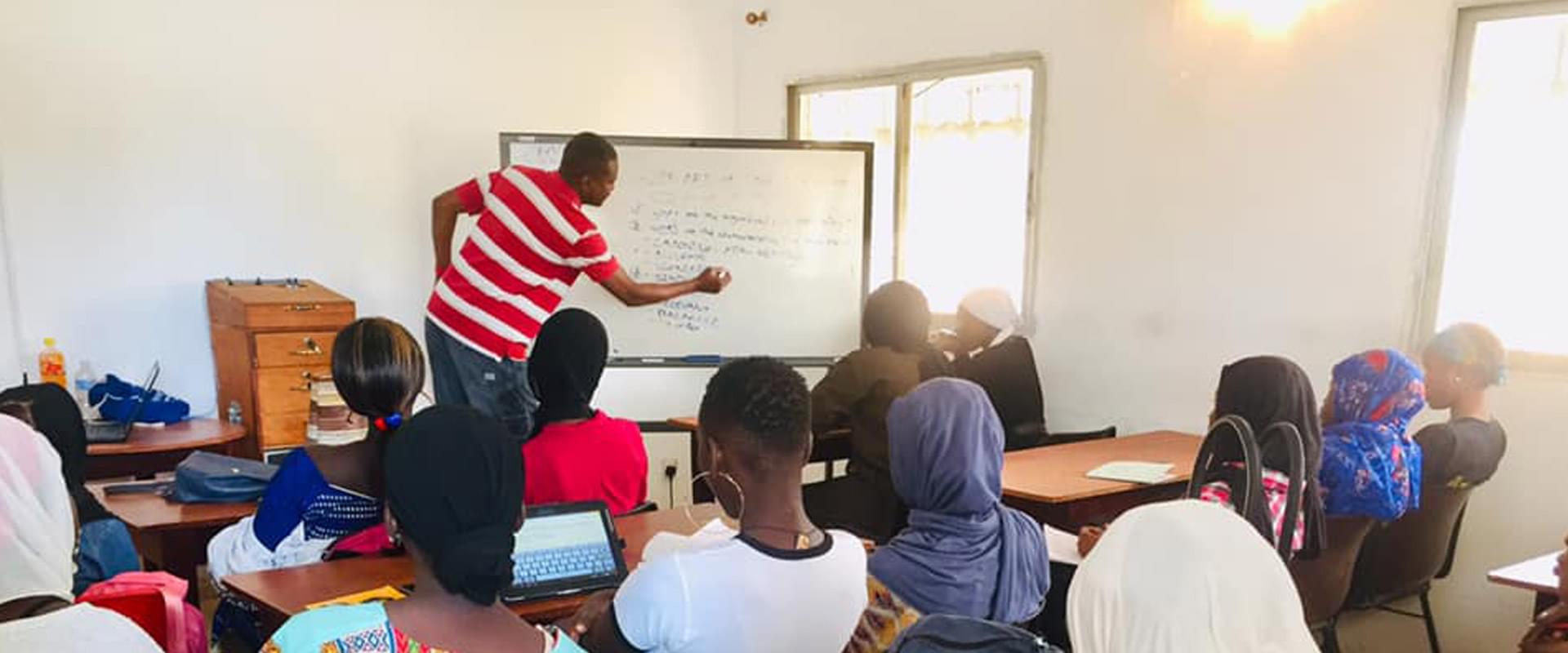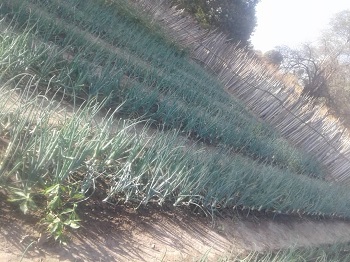
Mar 9, 2022 8:36 AM | Article By: Sanna Jallow

Onions faring well in a bed at a women garden
Farmers in the North Bank Region have lamented that post-harvest losses is a serious problem be-setting crop production in the area, affirming that candidates with plans to tackle the problem would greatly influence their voting in the 9th April parliamentary election.
A cross-section of farmers who spoke to this medium, acknowledged that post-harvest losses affect their earning and therefore needs urgent attention by concerned authorities.
Farmers’ concern
Lamin Njie, a 35-year-old gardener in Njaba Kunda in the Central Badibou said he encountered a challenge in controlling pests in his garden because he does not have enough pesticide to eradicate the pests at his garden, as a result, he losses many of the produces he harvested in his gardens to them.
He informed that community gardens have a great impact at community level, especially in small villages, adding ‘due to pests’ invasion, we experience a lot of difficulties in our gardens’.
Njie called on the government of the Gambia through the Ministry of Agriculture, and partners to find a solution to the problem for the well-being of farmers and the country, by extension.
Like other farmers, a solution to the problem would greatly influence his voting in the parliamentary election.
“I would only vote for the candidate who advocates the well-being of farmers in the Central Badibou District in the 9th April 2022 parliamentary,” he said.
Another farmer, Ndey Fatou Sanyang, a vegetable grower at Jokadu Karantaba, is also affected by post-harvest losses mostly caused to her crops by pests and diseases.
“Most of us (women gardeners) use the money we get from the garden to pay the school fees of our children and also take care of our other needs for our families,” she said.
The vegetable grower in Karataba confirmed that gardening has transformed the livelihoods of many women; and said that any candidate vying for the parliamentary seat of Jokodu should be ready to fight for the best interest of the farmers, as their representative at the National Assembly.
What aspirants offer?
Fatou Busso, an aspirant under the National People’s Party (NPP) for Upper Niumi said if elected, she would empower the women through government subsidies to remedy their problems.
“If I win the 9th April parliamentary election 2022 for Upper Niumi, I would not only focused on pests and diseases control, but I will also lobby projects including boreholes for clean drinking water, as most of the people of Upper Niumi lack clean drinking water in their areas,” she assured.
Aspirant Busso promised that the lack of fertilizer, seeds, and controlling pests and diseases would be her priority, as well as empowering women and youth farmers to access markets.
Sulayman Saho, the sitting National Assembly member for Central Badibou seeking re-election under the United Democratic Party (UDP) said if elected as the lawmaker for his constituency, he would liaise with the government through the Ministry of Agriculture to effectively control pests and crop diseases for the well-being of his electorates.
“If I am re-elected as the National Assembly Member for Central Badibou, I will make sure that the pest and crop diseases will be controlled- whether it is cultural, chemical or biological control for the betterment of agriculture for my people and the country at large,” he promised.
Expert observation
Lamin Fatty, an agriculturalist observed that the absence of permanent and standard selling places such as poor marketing structure, lack of simple storage technologies to maintain and prolong the life of produce which causes post-harvest losses.
He added that the unavailability of well- established markets, storage facilities, poor transportation and lack of practical skills related to post-harvest handling, temperature and humidity management, also cause losses to farmers after harvest.
“Post-harvest losses and quality deterioration of horticultural crops are mostly caused by pests, microbial infection, natural ripening processes and environment conditions such as heat, drought and improper post-harvest,” Fatty said.
According to a report by the Food and Agriculture Organization (FAO), poor seed quality, inadequate farming practices, or insect attacks in the field can provoke post-harvest losses for farmers.
The research added that broken grains from threshing could encourage the development of insects caused by the combined action of moulds, insects, rodents and other pests leading to post-harvest losses; as well as premature harvest, poor maturation, poor threshing, insufficient drying, and bird attacks, among others.
In many developing countries, overall post-harvest losses of cereals and grain legumes account for about 10 to 15 percent, and it is estimated to be about 50% in some regions of Africa and Latin America.
Comments (0)
0 Likes
Leave your thought here
Your email address will not be published. Required fields are marked *